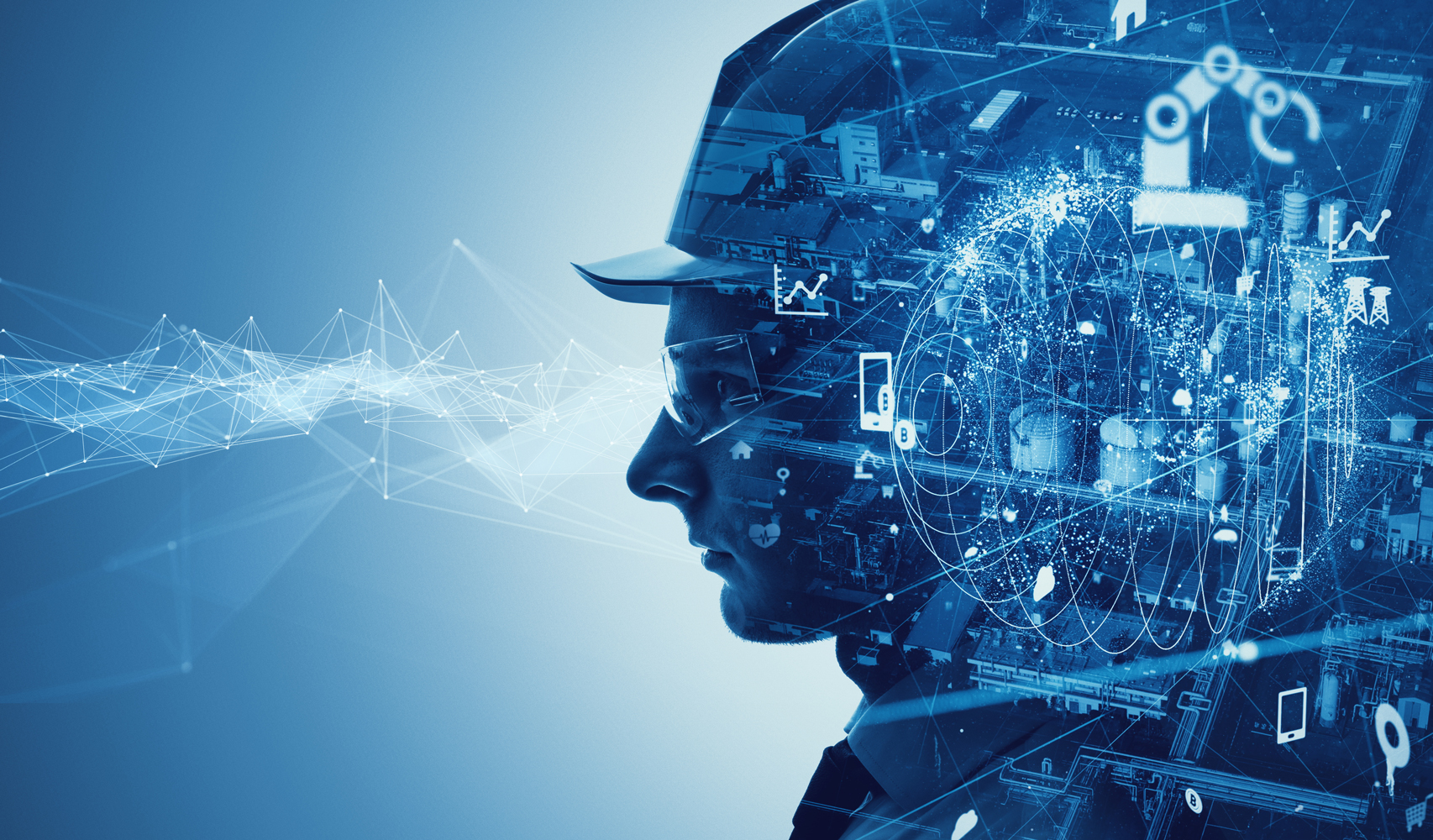Seamlessly integrated processes and AI in the MES environment

In conversation with Bernhard Falkner about the manufacturing platform, artificial intelligence and energy efficiency
When it comes to optimizing and increasing the efficiency of production processes, an MES is still the indispensable focal point in the IT infrastructure. If you want to maintain your competitive edge in the future and keep up with the market, you have to design your MES processes to be flexible, dynamic and future-proof. Modern communication technologies as well as AI-based optimization possibilities significantly expand the classic MES functions such as advanced planning & scheduling, plant data & machine data acquisition, part tracking, etc.
CTO Bernhard Falkner explains what matters in tomorrow’s digital manufacturing in a conversation about the manufacturing platform, artificial intelligence and energy efficiency.
Mr. Falkner, back in 2019 you presented the expansion from the classic, modular MES to an integrative manufacturing platform for connecting peripheral and third-party systems. Why are manufacturing platforms and seamlessly integrated processes gaining importance as a component of a future-proof smart factory?
From an IT/OT perspective, we are encountering an increasingly colorful and heterogeneous world on the shopfloor. A wide variety of functions, processes and data processing tasks have become necessary in order to meet the challenges in the areas of small lot sizes, tracking, tracing, etc. A large number of established applications – mostly as standard software systems – exist for this purpose.
With state-of-the-art communication technologies, a manufacturing platform such as cronetworld now makes it possible to integrate services seamlessly into the system landscape and to implement individual solutions in an agile manner. Information and process integration on both sides enables a central view of production-relevant, cross-system data and, in addition, flexible, user-oriented information provision and process design. This creates unprecedented optimization opportunities in the field of digitized production.
Which basic technologies form the basis for the success of a manufacturing platform?
While the MES with its tried and tested standard functionalities and well thought-out, proven data structures provides the necessary stability, new technologies and applications are needed on the way to the smart factory to enable the necessary and unrestricted system integration. For example, a powerful service bus creates the basis for real-time integration and thus ONE system for using data and functions from all shopfloor applications. This results in significantly improved traceability of processes across multiple systems – including control and monitoring capabilities. Another advantage of the Service Bus technology is the fact that it is ideally suited for both horizontal integration (e.g. communication with PLM) and vertical integration (e.g. OPC UA, S7, MQTT, M2M – and edge functions).

Artificial intelligence is one of the key technologies on the way to the smart factory. We have also approached this topic in the form of various research projects. In the meantime, we also have market-ready solutions.
Even though some companies have already recognized the importance of artificial intelligence, implementation is not always easy. In your opinion, what role does AI play in the manufacturing industry?
Artificial intelligence is one of the key technologies on the way to the smart factory. It is continuously making its way into the most diverse areas of the manufacturing world. We have also approached the topic in the form of various research projects. In the meantime, we also have market-ready solutions.
One of these areas of application is detailed production planning, which can benefit greatly from AI in terms of its complexity. The goal and benefit of artificial intelligence is to enable detailed production planning to act in a self-learning manner with technological support, like an intelligent planner. We have been involved in detailed production planning for 30 years and see it as a real revolution in production planning. However, the new technologies should not be seen as a substitute for planning staff, but should make the work easier for employees and significantly increase efficiency in the process.
What should medium-sized manufacturing companies look out for if they want to get involved with the topic of AI?
You don’t always have to deal intensively with the topic of AI in order to be able to use it for yourself. With an out-of-the-box predictive analytics solution, for example, we enable our users to quickly and efficiently look into the crystal ball of their manufacturing. This drastically reduces the time and effort required for data preparation. This also gives small and medium-sized companies access to AI solutions. Reliable forecasts of scrap, workplace disruptions, quality status, etc. are results that can be achieved with this without deep expertise in AI. And if necessary, these solutions can be extended and customized.
SUSTAINABILITY is another buzzword that everyone is talking about right now. To what extent can digital manufacturing solutions also make a significant contribution in terms of energy efficiency?
With our detailed planning, for example, planners can simulate different production scenarios in advance, compare and adjust them, and thus find the most energy-efficient ways of manufacturing. Subsequent evaluations then create even more transparency and renewed optimization potential for the future!
Optimized planning also minimizes the frequency of setup operations and regulates circulating stocks, among other things. In turn, the use of in-process quality assurance reduces rejects and thus also has a positive effect on energy consumption. So the possibilities are many and varied.



